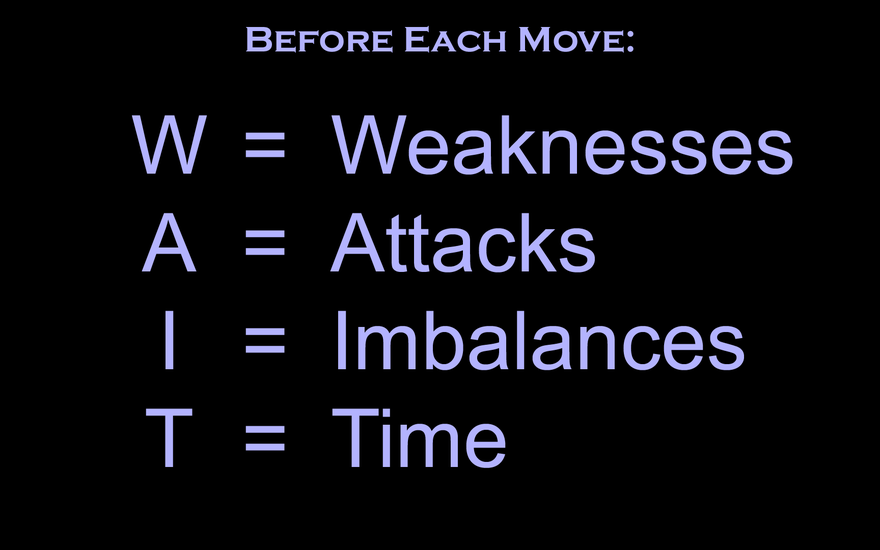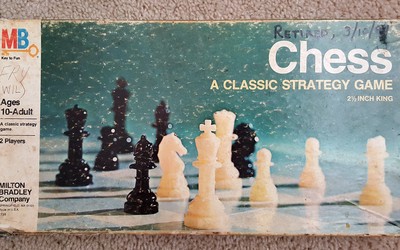
Chan Fry
W.A.I.T. Before Each Move
I've improved on my previous acronym, and maybe it will help you as much as it helps me.Previously I posted about my acronym process and the thinking that led up to it. Later, I rearranged some items and created what I think is a better acronym to help me remember what to look for before each move in a chess game. Here it is:
W.A.I.T
The letters stand for Weaknesses, Attacks, Imbalances, and Time. The order isn't important, and might change depending on your game. For example, Time becomes more important in faster games or near the end of longer games. Attacks aren't as important in the first few moves. And so on.
Basically the idea is that if I can remember to WAIT a second before moving, and consider each of these points, my play will improve.
Weaknesses can be all sorts of things, but mainly unguarded pieces or squares, or guards that can easily be removed. I need to be aware how safe my king is (and my opponent's king), and which pieces aren't protected. Other weaknesses can include trapped or inactive pieces, pins, etc.
Attacks include checks, captures, and threats. It seems elementary to you grandmasters, but we beginners often miss "simple" checkmate patterns or capturing tactics. Mainly because we're not actively looking for them. Already my games are improving because I'm training myself to look for (and evaluate the strength of) checks, captures, and threats on each turn.
Imbalances are more difficult to define for beginners like me, but material imbalance is the one we usually learn first. (Who has more pieces?) But I'm also starting to learn about bishops versus knights and when this is important. I'm looking at imbalances in pawn structures and which sides has more active pieces on better squares.
Time isn't usually my issue, because I tend to play Rapid or longer games, but when I do play Blitz I need to check the clock(s) once in a while. I need to know if I'm ahead on time, whether I'm moving too quickly or too slowly, and how it will affect the game.
Once I came up with this, I made a brief YouTube video to explain it (see below). The video includes examples from my actual games, where noticing one or the other of these things would have made a difference.


